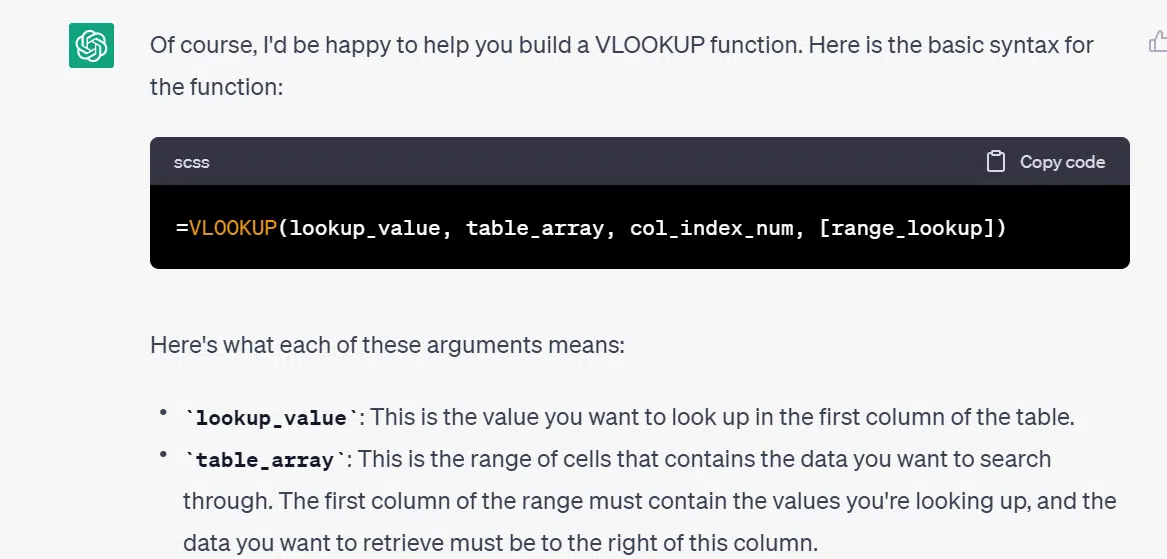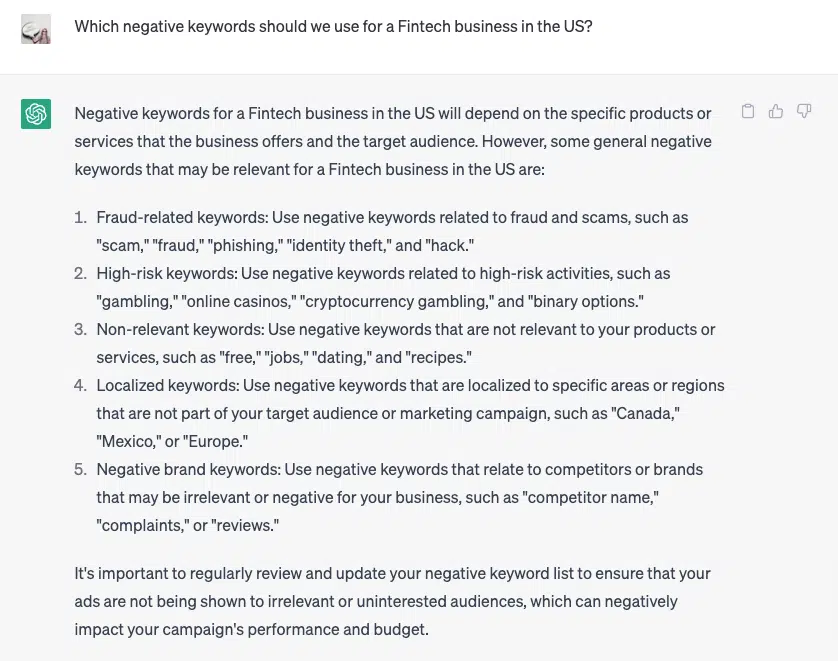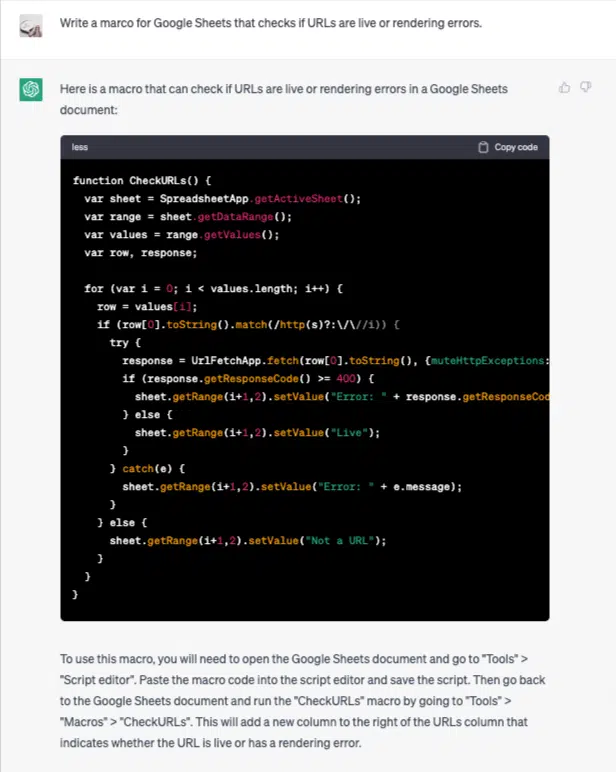Whether you’ve sailed through Q1 and early Q2 with optimism intact or battling challenges exacerbated by macro turbulence, there’s plenty of opportunity to stretch yourself and find competitive gains in the coming months.
This article discusses four initiatives I’ve seen drive great results for my B2B clients, including:
- Testing new channels to meet your audience where they are.
- Testing AI tools to increase your tactical efficiency and free strategic-planning bandwidth.
- Leaning into video.
- Incorporating customer feedback.
You’ll also learn how you can put them to work in your campaigns.
1. Test new channels – and new features
Advertising platforms, large and small, have been busy releasing new B2B-friendly features.
Social platforms, particularly, have recently added contextual and search-based targeting functionality.
- Instagram recently initiated testing for search result ads.
- TikTok is also testing search ads.
- Reddit is testing contextual functionality and (according to our reps) plans to roll out a search beta in the coming months.
- Facebook, along with improving its algorithm to beef up the quality of conversions of its lead gen ads, has added lead form options to target based on volume, higher intent, or custom goals – all of which can help cut down on spam and focus spend where it counts.
The time is ripe for carving out aggressive test budgets for new channels, particularly if you’re laboring under the high engagement costs of Google and LinkedIn.
My advice for expansion testing is to start with social channels and ignore programmatic until or unless you’re desperate for new traffic sources.
Exercise these testing muscles now and watch updates from the platforms that show the most promise for engaging your ideal client profiles as they roll out features.
2. Take advantage of AI
You might be sick of hearing about AI, but I’d be remiss if I didn’t join the crowd urging you to wade in and test its capabilities.
On the paid media side, there are three main functions I recommend you start using AI to help with:
Our favorite copy AI tools besides ChatGPT are Jasper, Grammarly and Quillbot. All the usual caveats apply about needing to QA any AI-generated copy before it goes anywhere external-facing.
But at minimum, AI can give you a great starting point to get over writer’s block since it’s almost universally easier for people to edit than to start from a blank slate.
Supplementing the AI copy options available is an emerging crop of visual tools. Whether it’s video (more on that in a bit), enhanced static-image creation from Canva, or motion graphics like Storyblock or Dribbble, marketers have plenty of tools to help bring their creative to life.
The last area where you can use AI to save time and create efficiency is analytics. You can pay for fancy AI-powered analytics platforms like Segment Tealium, Pecan, etc., but plenty of low-cost options help your campaign performance.
Even if you’re stuck in Google Sheets, you can use ChatGPT to:
- Set up some basic functions to smooth out your reporting.

- Build negative keyword lists.

- Write macros for spreadsheets.

Get the daily newsletter search marketers rely on.
3. Get serious about video
Many marketers still aren’t fully embracing video in their campaigns.
Whether on LinkedIn, Facebook, TikTok, or YouTube, there’s plenty of room for B2B engagement – if you can build compelling enough video content to harness it.
Even with a burgeoning marketplace of low-cost AI tools (e.g., Synthesis, DeepBrain, Pictory) that make video production and editing quick and cheap, many marketers have yet to dip a toe.
As a starting point, think about the resources you already have available. If you aren’t versed in production development, you can test animations in static ads.
You may have some old YouTube videos to practice chopping up in bite-sized segments. Maybe you have product demos or client testimonials that would piece together a great brand story.
The upshot is you’re likely starting with at least some inventory, not a blank slate.
And there may be folks on your marketing team who have at least dabbled in video editing – if you don’t have time to learn skills right now, take a quick straw poll of interest and experience on your team.
On the other hand, if you’re really down to learn, you can take matters into your own hands with tools like Loom or VideoAct and get content by recording yourself.
Video is only getting bigger. It’s time to join the fun.
4. Use the gift of customer feedback
Customer feedback has been around as long as things have been sold – and it’s never easier to gather it than it is right now.
Your customer service team, sales team, product reviews, online reviews, and social media accounts are great resources for insights about:
- Why people buy.
- Why they don’t buy.
- What they love most (and least) about your product or service.
All that feedback, especially the feedback that coalesces into themes, is fodder for marketing campaigns.
Problems solved can become case studies or testimonials.
Great experiences can become ad copy.
Questions you can immediately answer should be placed somewhere prominent on your website’s product or service pages.
One of the marketing team’s most important functions is to gather feedback and absorb its significance.
The most interactive a marketing team is with sources of customer insight, the more precise the targeting and messaging of its campaigns will be.
If, a few months after reading this, you’re still focused on Google and LinkedIn, using ads without motion or animation, applying manual rigor to all of your creative and analytics processes, and crafting strategic and tactical plans without considering audience feedback, you’ll be locking in a series of competitive disadvantages.
Especially lately, free and budget-friendly features have emerged to help marketers do their jobs.
No matter what size your company, team and budget, ensure you’re using what’s available to help you do your job more effectively – and reap the performance rewards.
Opinions expressed in this article are those of the guest author and not necessarily Search Engine Land. Staff authors are listed here.
Related stories
New on Search Engine Land
https://searchengineland.com/b2b-paid-media-strategies-404114


